


The Mystical City of God in four volumes by Venerable Mary of Agreda was translated into English from the original Spanish by Fr. George J. Blatter (Fiscar Marisonhis nom de plume) and published by him in 1912 with the imprint of the Theopolitan Company of Chicago, composed of Fr. Blatter, his brother, and some friends for purposes of disseminating the book. In 1929, Mr. Louis W. Bernicken assumed publication of the four volumes, and in 1949 this work was taken over by Mr. Harry D. Corcoran of Albuquerque, New Mexico under the name of the Corcoran Publishing Co. In 1971 rights to the book were purchased by Ave Maria Institute (the Blue Army) of Washington, New Jersey, the present publisher, now called the Blue Army of Our Lady of Fatima, USA Inc.
This popular abridgement of the four-volume work was compiled, it is believed, by Fr. Cassian Burgert, O.F.M. Cap. and was published by Mr. Bernicken. It had gone through five printings of about 1,000 copies each by the time of the printing of this paperbound edition.
IMPRIMATUR
Santa Fe, New Mexico, February 9, 1949.
I gladly give my Imprimatur as of today, to the new edition of the work, The City of God by Sister Mary of Jesus, to be reprinted from the original authorized Spanish Edition of the year 1902 without change, and already bearing the Imprimatur of His Excellency, Most Reverend H. J. Alerding, Bishop of Fort Wayne.
 Edwin V. Byrne, D.D.,
Edwin V. Byrne, D.D.,
Archbishop of Santa Fe.
Copyright by Rev. George J. Blatter. All Rights Reserved. Copyright 1978 by Ave Maria Institute.
Published by arrangement with Blue Army of Our Lady of Fatima, USA Inc., Washington, New Jersey.
Library of Congress Catalog Card Number: 78-62255
ISBN: 978-0-89555-070-5
TAN Books
Charlotte, North Carolina
1978
Contents
The Conception
The Incarnation and Transfixion
The Coronation
What the Universities of Europe, the Religious Orders and Learned Men Say of the Ciudad de Dios.
F ORTY years after the first appearance of the Ciudad de Dios the great universities of Europe were called upon to give their opinion about this great work. All the faculties, except the Jansenistic members of the Sorbonne at Paris, published highest recommendations. At the same time the learned men and teachers of each religious Order that maintained institutions of learning in Europe, were asked to contribute their opinions. The following religious Orders complied: The Augustinians, Benedictines, Carmelites, Dominicans, Jesuits, Cistercians, Basilians, Trinitarians, Mercedarians, Minims, Hieronymites, Premonstratensians, Reformed Augustinians, Theatines, Minors of the Regular Clergy, all unanimously endorsing the favorable decision previously published by the University of Salamanca. To the approbation of nearly all the Universities and Religious Orders, were then added the high eulogiums of other learned men, great divines, bishops and princes of the Church and of the Popes and the Roman Congregations. As a sample of what these witnesses said concerning the wonderful Ciudad de Dios, we here select the official approbation of the University of Louvain, one of the great Universities of Europe. After pointing out that Gods power of giving private revelations to whom He chooses, must not be circumscribed, and after referring to some general rules in regard to private revelations, the document proceeds to say:
Now, while abiding the decision of the Church concerning the revelations, which are given us under the title of The City of God, we, having read the whole work, say and are of the opinion, that the faithful can read it without danger to their faith and without damage to the purity of morals; for there is not found anything within it, which could lead to relaxation or to indiscreet rigor; but on the contrary, we have come to the conclusion that it will be most useful for enlivening and augmenting the piety of the faithful, the veneration of the most holy Virgin, and the respect for the sacred mysteries.
The strong and the weak, the wise and the ignorant, and in fine, all the world will gather richest fruit from the reading of these books: for they contain what is most sublime in theology and in a style so simple, easy and perspicuous that, in order to enter deeply into an understanding of the holy mysteries, no more is necessary than to read them with sound judgment.
Combined with this simplicity are found many doctrines and valid proofs, free from contradictions and not easily found in other writings. This History explains more than a thousand difficulties in holy Scripture, in a manner equally natural and wonderful. At every step are encountered exquisite interpretations, until now unknown, and which had been hidden beneath the mere letter, but are laid open in these writings and brought to the light. In short, the whole work is a beautiful web of scripture passages which, though spun from its different books, are directly and specially woven into a whole for the purpose intended by the Venerable Mother.
In addition thereto the instructions given by the most holy Virgin at the end of each chapter contain the purest morality, instruct, entertain, and at the same time sweetly inculcate the love of virtue and abhorrence of vice, painting them in the most vivid and natural colors. They do not only convince the intellect, but they contain such a special unction, that they enkindle a sacred ardor in the soul. In meditating upon them one certainly will experience a delight not met with in ordinary writings; and the more they are read the greater is the delight experienced. Finally, the whole work contains something so unwonted and attractive that, once begun, the reading of it can scarcely be relinquished.
The novelty and variety found in these writings delight and recreate the reader beyond all that is pleasant in the world, at the same time instructing him and inspiring him with new fervor. All can easily persuade themselves that, if the interior life of Christ our Lord and of the most holy Virgin was not just as described in these books, it could certainly have been like it; and that it would have been well worthy of them, if it was as it is there depicted. All that is there said is befitting the majesty and humility of Christ, and in correspondence with the holiness of the Virgin and the dignity of the Mother; since there is found nothing in the whole work which was not worthy of both one and the other.
Next page
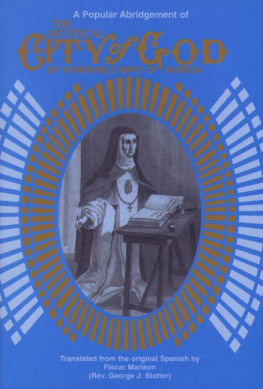
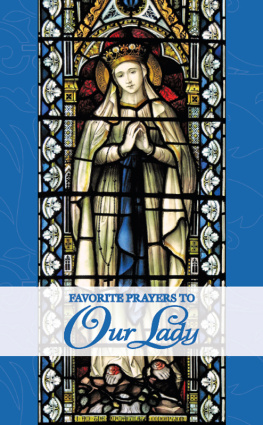
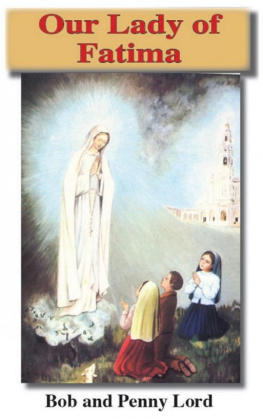
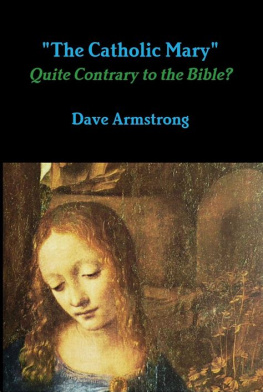


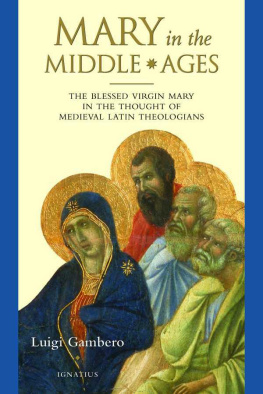
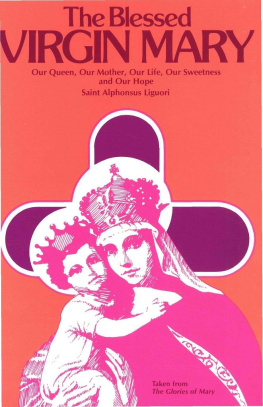
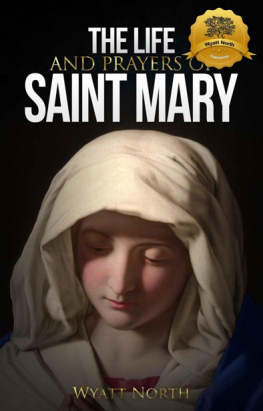
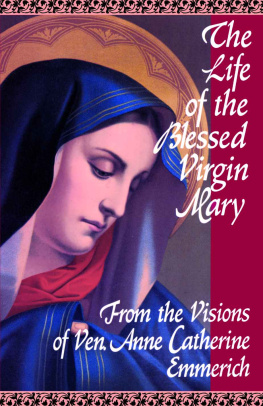




 Edwin V. Byrne, D.D.,
Edwin V. Byrne, D.D.,